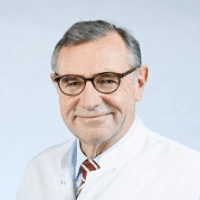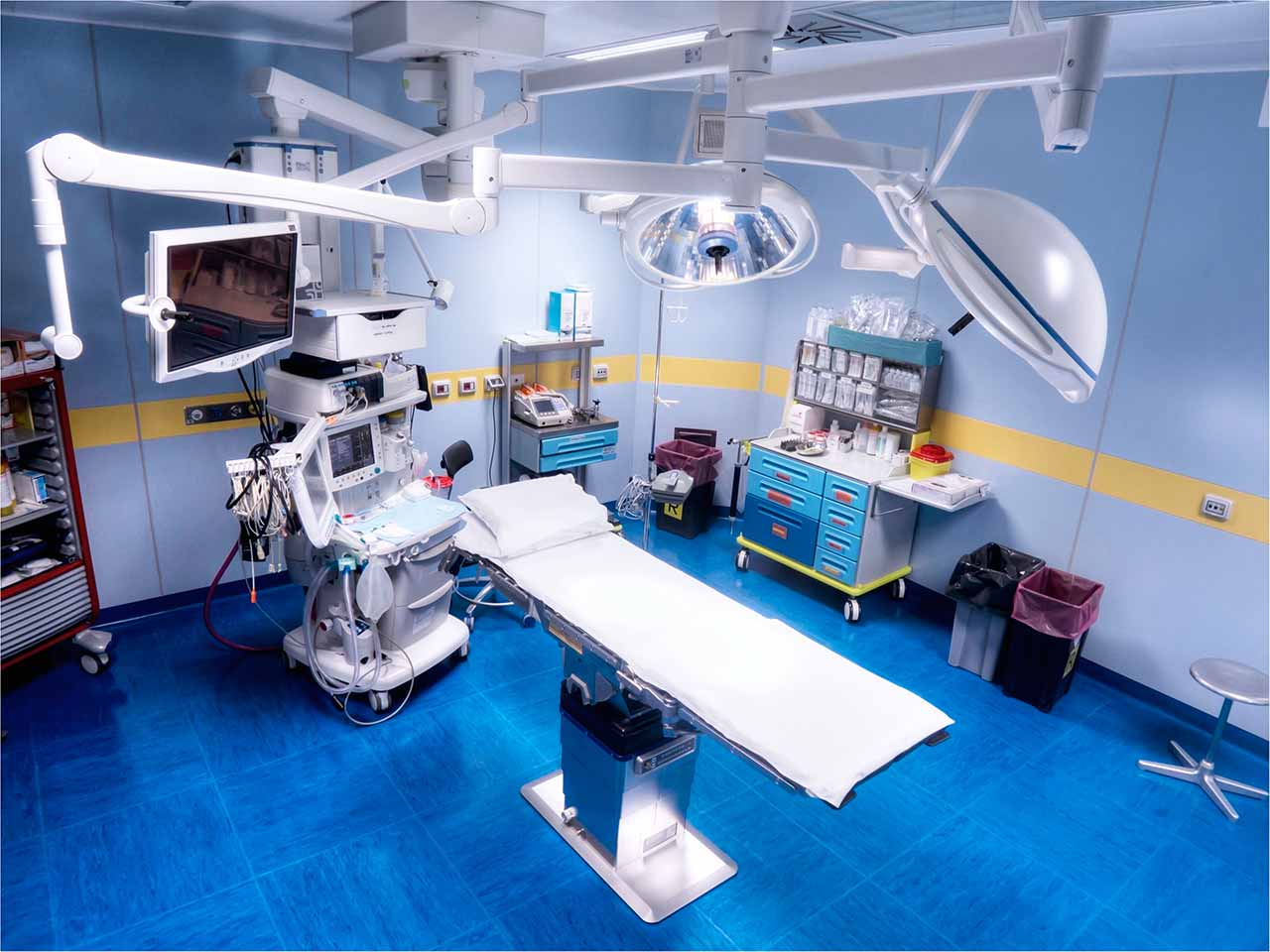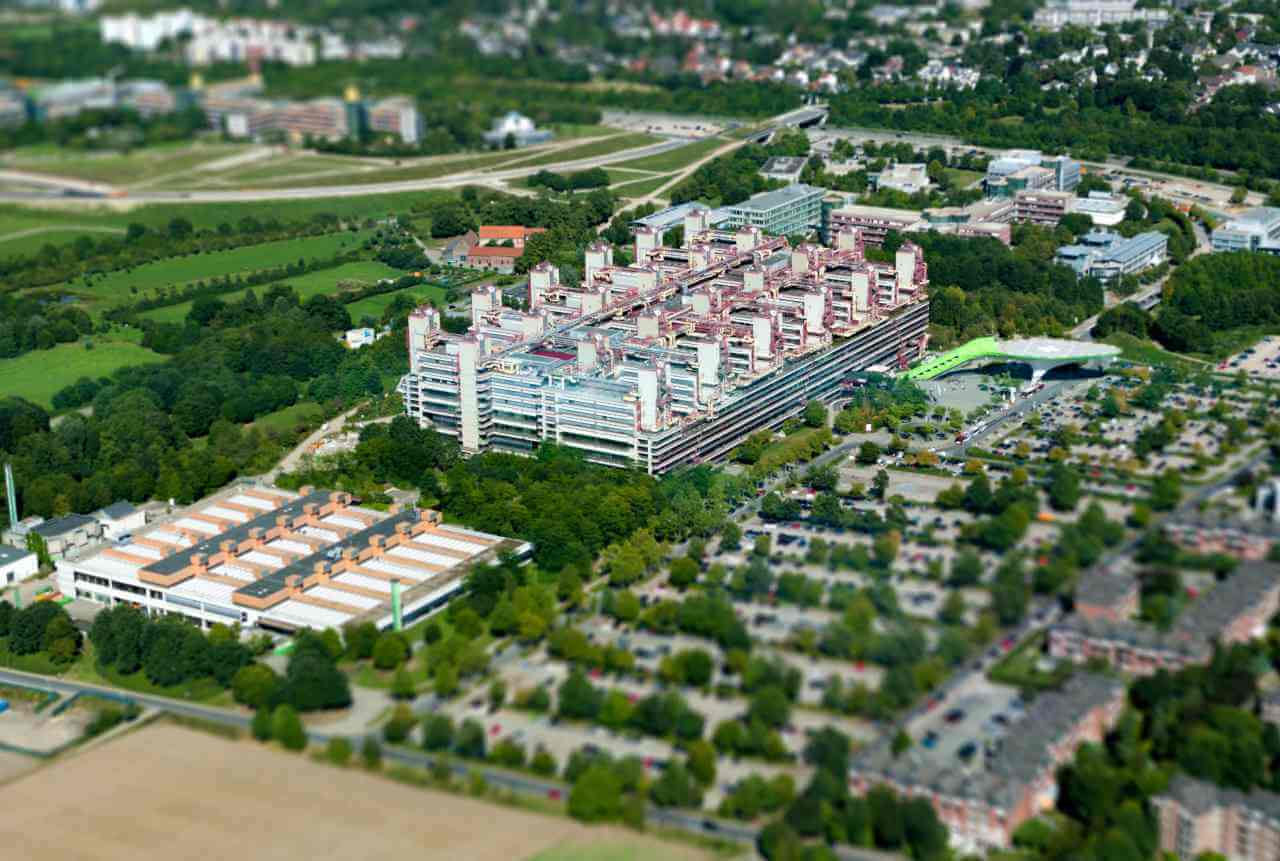
The program includes:
- Initial presentation in the clinic
- Clinical history taking
- Review of medical records
- Physical examination
- Laboratory tests:
- Complete blood count
- General urine analysis
- Biochemical analysis of blood
- Indicators of inflammation (CRP, ERS)
- Indicators of blood coagulation
- Blood pressure measurement
- ECG
- Echocardiography, if necessary, transesophageal one
- Preoperative care
- Catheterization of blood vessels and heart chambers
- Transcatheter implantation of the Carillon Mitral Contour System
- Symptomatic treatment
- Control examinations
- Full hospital accommodation
- Cost of essential medicines and materials
- Nursing services
- Explanation of future recommendations
Indications
- Functional mitral regurgitation (FMR)
How program is carried out
Day 1-2. Initial presentation at the clinic. After consultation with the attending physician and physical examination, the patient undergoes the necessary laboratory and instrumental examination.
Day 3. On the 2-3 day of hospital stay, after receiving the examination results and their assessment by the attending physician, the transcatheter implantation of the Carillon Mitral Contour System is performed. The operation requires only local anesthesia at the site of catheter insertion.
After insertion into the jugular vein, a guide catheter is moved towards the heart. It enters the right atrium and the coronary sinus. The coronary sinus is located around the mitral valve. Being placed inside it, the Carillon Mitral Contour System reshapes the mitral annulus and the mitral valve itself. The required size of the Carillon Mitral Contour System is determined preliminary, based on the examinations data. Due to this, the volume of regurgitation through the mitral valve is reduced significantly and the patient feels better. After installing and fixing the Carillon Mitral Contour System, the catheter is removed, and a bandage is applied to the place of its introduction.
From day 4. The patient stays in the ward of the cardiology department, under the supervision of doctors and nursing staff. Depending on the dynamics of the health condition, the patient is discharged from the hospital on days 4-10.
Required documents
- Medical records
- EchoCG (if available)
Service
You may also book:
 BookingHealth Price from:
BookingHealth Price from:
About the department
According to the Focus magazine, the Department of Cardiothoracic Surgery at the University Hospital RWTH Aachen ranks among the top medical facilities in the field of its specialization!
The department offers all options of modern surgery for the treatment of diseases of the cardiovascular system and thoracic organs. The department widely uses modern minimally invasive techniques, which are considered the gold standard of surgery. Since its founding in 1976, the department has performed more than 40,000 open heart interventions. The department's surgeons also have vast experience in the field of implantation of the artificial heart and mechanical heart support systems. All operations are carried out in strict accordance with the protocols of professional societies. The department is headed by Prof. Dr. med. Rüdiger Autschbach.
The department has 63 beds, as well as 28 beds in the Intensive Care Unit. In general, the department's cardiothoracic surgeons perform more than 1,500 surgical interventions annually, whereas about 1,000 of them in the open heart. Thus, the department has earned a reputation as the largest and one of the most successful Cardiology Centers in North Rhine-Westphalia.
The department's range of medical services includes:
- Cardiovascular interventions
- Coronary artery bypass grafting with or without heart-lung machine, including minimally invasive bypass grafting
- Heart valve surgery: classical and minimally invasive heart valve replacement surgery, reconstructive heart valve surgery
- Correction of heart diseases in adulthood
- Surgical treatment of heart arrhythmias: implantation of pacemakers and defibrillators, single-chamber and multi-chamber systems (biventricular stimulation)
- Surgical treatment of heart tumors
- Implantation of an artificial heart and heart support systems
- Interventions on thoracic organs
- Minimally invasive surgery
- Bimanual video-assisted mediastinoscopy
- Thoracoscopy for lung biopsy, pleural biopsy, talc pleurodesis
- Video-assisted thoracic surgery
- Resection of lymph nodes and mediastinal tumors
- Atypical lung resection
- Pleural empyema
- Bullectomy
- Lung volume reduction surgery
- Resection of pericardial cysts
- Pericardial fenestration
- Anatomical resection of lung lobe in lung cancer
- Resection of pulmonary metastases
- Interventions in pneumothorax (lung rupture)
- Conventional thoracic surgery
- Surgical oncology in lung cancer
- Classical lung resections, including the resection of sentinel lymph node
- Extensive interventions (bronchoplasty, angioplasty), as well as thoracic wall resection, resection of the right atrium, pericardium and diaphragm, peripheral tumors of the upper lobe of the lung
- Multimodal therapy concepts (combination of surgical intervention with chemotherapy, radiation therapy)
- Resection of thoracic wall tumors
- Surgery in pulmonary emphysema
- Bullectomy
- Lung volume reduction
- Surgery to treat pleural mesothelioma
- Thymus resection
- Surgical treatment of tumors and tracheal stenoses
- Surgical oncology in lung cancer
- Minimally invasive surgery
- Aortic surgery (for example, in aneurysms)
- Other surgical options
Photo of the doctor: (c) Uniklinik RWTH Aachen
About hospital
According to the prestigious Focus magazine, the University Hospital RWTH Aachen ranks among the top German hospitals!
As a maximum care university medical facility, the hospital guarantees patients first-class medical services combined with a respectful and human attitude. The hospital integrates all the modern options for the accurate diagnostics, effective therapy and productive research activities within one specialized center.
The hospital has more than 60 departments, institutes and interdisciplinary centers. A competent team of professionals, consisting of more than 7,000 employees (more than 940 doctors, including about 95 professors), takes care of the patients' health. In addition, multidisciplinary teams of nurses, physiotherapists, as well as medical and technical staff are available here. The patients and respectful attitude to their social, cultural and religious affiliations are at the center of all employees' efforts.
The cornerstone of the successful clinical practice is the innovative technical base. The hospital offers the most advanced diagnostic and therapeutic equipment. Thus, the hospital has all the resources in order to provide top-class medical services.
Photo: (с) depositphotos
Accommodation in hospital
Patients rooms
The patients of the University Hospital RWTH Aachen live in comfortable single and double rooms. All patient rooms are designed with large windows, so one can enjoy a beautiful landscape view. Each patient room has an ensuite bathroom. The standard room furnishing includes an automatically adjustable bed, a bedside table, a spacious wardrobe, a TV, a radio and a telephone. Also, there is Wi-Fi access.
Meals and Menus
The patient and his accompanying person have a daily choice of three menus. If for any reason you do not eat all the foods, you will be offered an individual menu. Please inform the medical staff about your dietary preferences prior to the treatment.
Further details
Standard rooms include:
Religion
Religious services are available upon request.
Accompanying person
During the inpatient program, an accompanying person may stay with you in a patient room or at the hotel of your choice.
Hotel
During the outpatient program, you can live at a hotel of your choice. Managers will help you to choose the most suitable options.
The hospital offers a full range of laboratory tests (general, hormonal, tests for infections, antibodies, tumor markers, etc.), genetic tests, various modifications of ultrasound scans, CT scans, MRI and PET / CT, angiography, myelography, biopsy and other examinations. Treatment with medications, endoscopic and robotic operations, stereotaxic interventions is carried out here, modern types of radiation therapy are also used. The hospital offers patients all the necessary therapeutic techniques.
- Embolization of tumors and vascular malformations
- Aortic surgery, including in children
- Radiosurgical interventions in the head and body region
- Cochlear implantation
- Treatment of all types of sports injuries
These are pathologies of the brain and spinal cord, benign and malignant tumors of various localizations, congenital and acquired heart defects, joint pathologies, stroke, neurodegenerative diseases, eye injuries, inflammatory skin diseases, allergies and other pathologies.
- Oncology (EU Regional Center for Comprehensive Cancer Care Aachen)
- Pediatric cardiac surgery
- General and abdominal surgery
- Plastic and burn surgery
- Pediatric and adolescent medicine
Over 940 highly qualified doctors work at the hospital.





